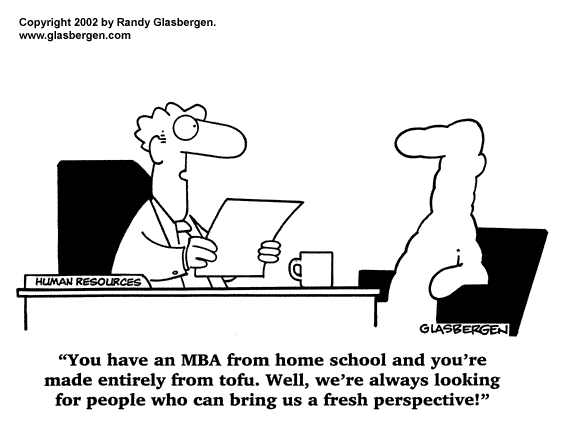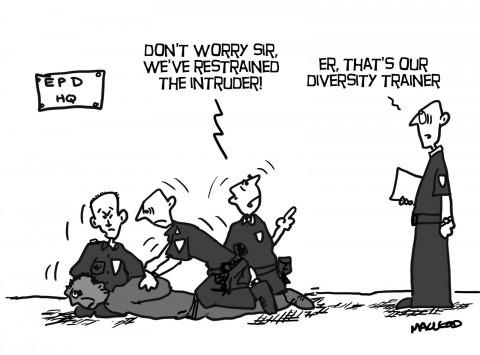Starting a Career as a Cross Cultural Trainer
Following on from our blog on becoming a trainer, we are very lucky to be able to pick the brains of an experienced cross-cultural trainer with solid experience in the intercultural field.
Joyce Jenkins, President of SIETAR UK, offers her insights and advice to three questions about getting started as a trainer or a professional in the cross-cultural training field.
Let's see what she had to say!
Firstly, what is SIETAR UK?
"SIETAR‘s mission is to encourage the development and application of knowledge, values and skills which enable effective intercultural and interethnic relations at individual, group, organisation and community levels."
The organisation as a whole works to:
• contribute to more effective communication among people of different cultures and backgrounds
• enhance intercultural awareness in policy-making, business, education and civil society
• establish an ever-widening network of intercultural specialists
• provide multi-disciplinary, professional expertise
• contribute to the development of professional standards
• encourage publication and promote research
As well as a UK branch they also have groups in Europe, the USA, India, Japan and many other countries.
To find out more about them please visit their website.
Interview: Tips for Newcomers to Cross-Cultural Training
#1 What advice would you give to someone wanting to become a trainer?
If you are looking for a nice, predictable job, with a daily routine and a regular salary – being an intercultural trainer is probably not for you!
One of the attractions of the intercultural development profession is that every training assignment is different, as it involves people from an infinite range of backgrounds, with different experiences, sets of skills, assumptions, expectations and goals.
An Indonesian student going to Australia to do a PhD may have dramatically different training needs from an American engineer trying to introduce new health and safety regulations at a subsidiary’s plant in China. They may also have some shared requirements, for example learning about different cultural expectations for socialising.
Sometimes clients request training to address one issue but a trainer can lead them to valuable insights into something else.
A typical request from someone like our American engineer, for example, might be to cover ‘dos and don’ts of Chinese culture - so I don’t offend anyone’. Having discussed his goals and experience the trainer might also explore the impact of culture on attitudes to rules or to making mistakes and, particularly in China, to ‘losing face’.
This may lead to an understanding of why accident reports are not filed at the new plant, when he has personally witnessed a number of slips and falls, which should have been recorded, in order for the cause of the problem to be identified and remedied to prevent future injuries. The trainer would also work with the engineer to be sure that he can apply the cultural learning to create an action plan to address the issue.
Intercultural training is not all about national cultures either.
It may involve different corporate, regional, generational, professional, educational or other groups. Being an intercultural trainer often involves thinking on your feet and outside the box. In order to assess the client’s situation, then design, develop and deliver the best programme requires flexibility and creative ways of looking at the world. That makes it extremely rewarding and varied. It also could be argued that the work we do is more important and valuable than ever, in this increasingly globalised yet divided world.
Though I didn’t know it at the time, my first intercultural training job was in 1983, volunteering at a refugee camp in Thailand.
I ran training courses for Cambodian families who had been granted asylum, preparing them for their new life in the U.S., Canada, or Europe after fleeing the Khmer Rouge’s ‘Killing Fields’. It was an impactful and inspiring experience; a reminder both of the horrors that human beings can inflict on one another in the name of difference and of the triumph of the human spirit over adversity in those that survived.
Since then, most of my work has involved corporate settings and using culture to enhance the effectiveness of teams and leaders in the business world. I had hoped the world had moved on too, but unfortunately, watching the news these days, it seems that more still needs to be done to foster better communication, understanding and respect between people of different cultures.
Trainers too come from a range of backgrounds and professions, via various routes, and have different motivations. As a relatively new profession, there is no standard route to becoming an intercultural trainer.
In order to succeed however, you do need highly developed skills, knowledge and experience and there will be certain requirements that most potential employers or clients will be looking for, in addition to individual specialisations.
Some come to intercultural training from corporate learning and development or HR backgrounds and are wanting to add intercultural skills to their toolkit. Others may be involved in language teaching or translation/interpreting and have developed an interest in intercultural communication through that experience. Others come from a range of business backgrounds and may have spent time studying abroad or on international expatriate assignments. Some work directly with clients, others through third-party providers.
It is also a very dynamic field that is continuously developing and evolving. There is always more to learn.
Key requirements for intercultural trainers are:
1. Extensive, significant intercultural experience; this may include living or working internationally, in roles that require intercultural interaction. Trainers also need to demonstrate the ability to learn from their experience and apply the learning to intercultural situations.
2. Professional and organisational experience and knowledge: so you can understand the needs of the people you are working with or training, what motivates them, how their performances are measured and relate to the kind of issues they face, e.g. building an intercultural team, communicating with virtual teams, or conflict resolution across cultures.
3. Training, facilitating, presentation and coaching skills are worth investing in and developing.
4. Intercultural knowledge of the theories, models, frameworks, e.g. Cultural Intelligence (CQ)) and how to apply them: attend a train the trainer course, read the work of specialists in the field. (Hall’s iceberg model of culture and Hofstede’s dimensions of culture are well-known but more current scholars like Milton Bennett and Helen Spencer-Oatey are useful resources.) Join the Society for Intercultural Education, Training and Research SIETAR UK attend talks, events and workshops, sign up for newsletters and webinars.
5. Your own special areas of interest or expertise and create your own U.S.P. This could be specialising in particular regions of the world, or specific countries or a particular professional background, industry or a certain community or area in which you have expertise e.g. the legal profession, the automobile industry, advertising or sports.
6. People skills: different employers and clients will be looking for different skillsets and expertise, but they will also look for someone who is pleasant and personable to work with, as well as professional and reliable.

#2 What are the responsibilities of a trainer?
The key responsibility of an intercultural trainer is to deliver training that addresses the needs and interests of the client and fosters the development of effective intercultural interactions.
Depending on whether you are working directly with the client or through a third-party provider, this may involve assessing the client’s situation and determining what their purpose is in taking the training and what their goals are. Then it would involve determining the best methods and materials and designing and delivering the programme.
The training may involve imparting knowledge (about cultural theories or about specific cultures) but also encouraging self-awareness and different perspectives in order to bring about a change in mindset, attitudes, beliefs and behaviour.
For example, if your client is frustrated by suppliers who constantly miss deadlines, you might explore with them whether cultural factors might be influencing that then work with them to develop ways of changing the situation. They might adopt a different communication style or leverage their status or relationships in order to get things done on time - or they could adjust their own expectations about timeframes.
The training may involve presentations, as well as facilitation of experiential learning, simulations, activities, role-plays and case studies. It may involve individual coaching or group work; whatever works best to encourage clients to reflect on, learn from and apply what they have learned.
#3 What skills make a great trainer?
A great trainer is someone who can recognise and leverage the positive potential as well as the challenges of intercultural interactions and is then able to do whatever it takes to develop the knowledge, mindset and behavioural skills their clients/students require to be effective in whatever intercultural context they find themselves in.
In addition to the background and skills listed above, a great trainer should be really interested in people and what motivates them. You should be a fantastic listener and culturally observant, to be sensitive to nuances of context and behaviour.
You have to be flexible, adaptable and knowledgeable. Being culturally self-aware is very important, as is being open-minded, having a global mindset and the ability to manage complexity. You also have to love learning and to be willing to learn something new virtually every time you train.
If you think you have some or all of these qualities and want to develop them further, I certainly recommend being an intercultural trainer. It is a very satisfying profession to get involved in.. and it is never dull!

Joyce Jenkins
President, SIETAR UK
Joyce is President of SIETAR UK and has over 30 years experience as an intercultural trainer, coach and facilitator. She is currently studying for an MA/PhD in Intercultural Communication for Business and Professional Purposes.
A big thank you to Joyce from the Culture Vulture and all at Commisceo Global! Tweet her to say thanks too!
By accepting you will be accessing a service provided by a third-party external to https://www.commisceo-global.com/

 +44 0330 027 0207 or +1 (818) 532-6908
+44 0330 027 0207 or +1 (818) 532-6908
